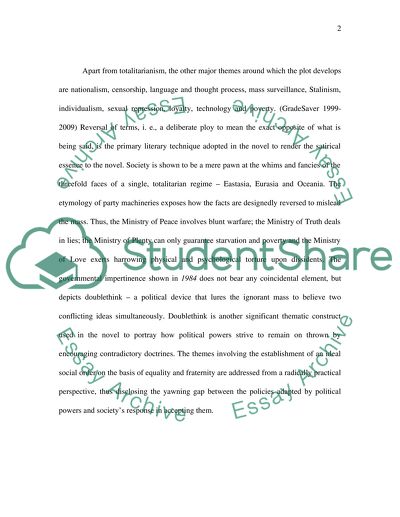Cite this document
(“George Orwells 1984 and America's Political News Media Book Report/Review”, n.d.)
Retrieved from https://studentshare.org/miscellaneous/1522596-george-orwells-1984-and-americas-political-news-media
Retrieved from https://studentshare.org/miscellaneous/1522596-george-orwells-1984-and-americas-political-news-media
(George Orwells 1984 and America'S Political News Media Book Report/Review)
https://studentshare.org/miscellaneous/1522596-george-orwells-1984-and-americas-political-news-media.
https://studentshare.org/miscellaneous/1522596-george-orwells-1984-and-americas-political-news-media.
“George Orwells 1984 and America'S Political News Media Book Report/Review”, n.d. https://studentshare.org/miscellaneous/1522596-george-orwells-1984-and-americas-political-news-media.


